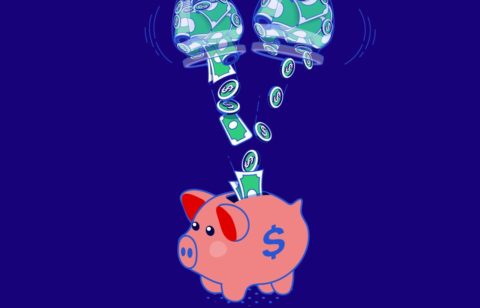Getting ready for retirement can be challenging, and it’s not surprising that many people get uneasy about their finances as their retirement date nears. In fact, when it comes to retirement, nearly half of all Americans cite running out of money as their top concern. It doesn’t have to be that way, however. If you do some prudent planning and have a bit of discipline, your second act in retirement can be the happiest, most financially secure part of your life. Here are five great money management tips you can use to thrive in your retirement years.
1. Make a Budget and Live Within It
Whether you’ll live off a lifetime of savings from your IRA, 401(k) or other retirement account or you’re one of the fortunate few who’ll have a pension in retirement, establishing and maintaining a budget will be critical. You’ll likely have considerably less income coming in during retirement, so you’ll need to manage your cash flow carefully. Failing to do so can lead to the rapid depletion of your retirement savings, and leave you without necessary funds for the coming years. Once you build your post-retirement budget, pay close attention as you follow it for the first few months of retirement. Doing so will help you make necessary adjustments to your spending habits, so you adapt more readily to your new financial situation.
2. Adapt to Your New Reality
You can have a great second act, as long as you adapt to the new financial realities that your retirement brings. After you’ve lived within your budget for a few months, you’ll undoubtedly have to make adjustments to live comfortably. Consider a few lifestyle changes to ensure security in retirement.
Home
Can you comfortably afford your current living accommodations in retirement, or are you going to have to adjust? If the mortgage, rent, or property taxes are too much for your retirement budget, or if you no longer need such a large home in retirement, you may want to consider downsizing to a more affordable home to save money.
State
Is your state retirement-friendly? Some places are great to live in when you retire, while others leave much to be desired. If the cost of living, tax situation, and other factors will put a strain on your retirement budget, you may want to consider moving somewhere else.
Car
How many cars will you need in retirement, and how much do you want to pay in automobile insurance? If you have a tight retirement budget, downsizing to a more modest car might help you save money on car payments, gas, and insurance each month.
3. Prioritize Debt Repayment
If you’re getting ready to retire or recently began your retirement, addressing your outstanding debt should be a top priority. Retirement can compound the challenges of managing personal debt, especially if you’re on a tight budget and have other critical expenses of note. It’s not surprising that 40% percent of retirees consider paying off their debts as their top financial concern. As you prepare for or enter retirement, be as proactive as you can about debt management. If you don’t have the means to make a dent in your credit card and other debt balances, consider taking steps such as a debt consolidation loan, or even using debt settlement services like those offered at National Debt Relief. The sooner you pay off your debts in retirement, the more money you’ll have available for your other priorities.
4. Prepare for Healthcare Costs
While most people will be able to count on Medicare benefits in retirement, it’s not always enough. Throughout your retirement, you can expect to pay thousands of dollars on deductibles, co-pays, prescription drugs, and premiums that Medicare won’t cover. If you want to ensure that unexpected healthcare costs don’t derail your retirement plans, start preparing right now. For starters, talk to a trusted financial advisor to see how you can mitigate gaps in Medicare and other insurance plans. In many cases, you should be able to purchase Medicare supplemental insurance that closes those gaps and limits your exposure to unexpected healthcare costs.
5. Keep on Earning
If you want to have a comfortable retirement, one of the best money management tips you can heed is to continue generating income well into your post-career years. For many retirees, annuities are a great option to generate steady income, while others may be able to earn additional retirement income through a combination of investments and savings. As you prepare for retirement, talk to a trusted financial advisor to determine what post-retirement income strategy will work best for you.
Personal financial management is more important than ever when you retire. These money management tips can help you prepare for retirement and set you up financially for a great second act. Consider the advice offered here, and get ready to live your best life in retirement!







